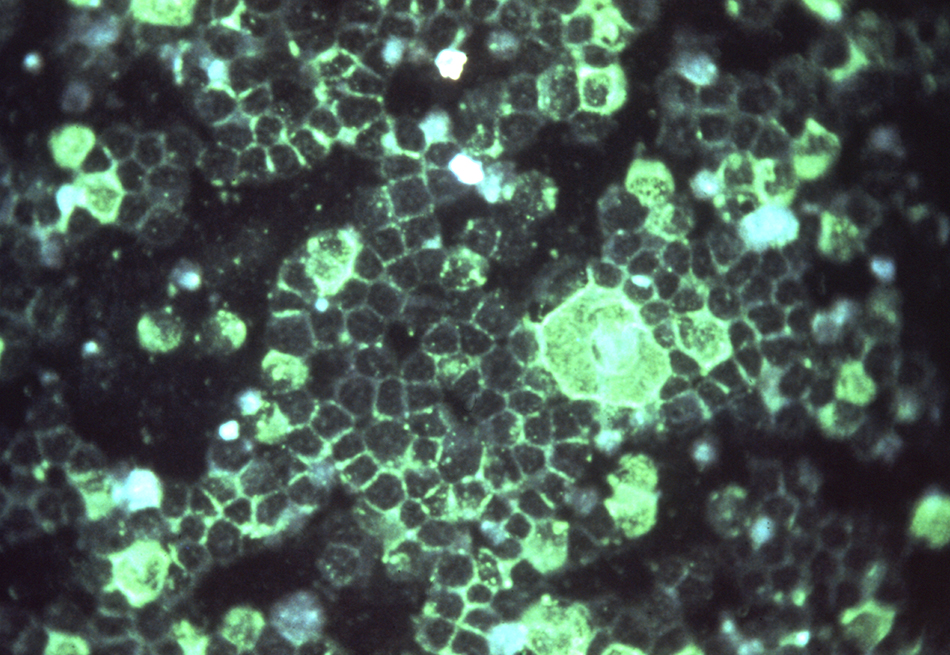Respiratory syncytial virus, or RSV, is a respiratory virus that infects the lungs and breathing passages. Healthy people typically experience mild, cold-like symptoms and recover in a week or two. However, RSV can be serious, particularly for infants and the elderly. RSV is the most common cause of bronchiolitis (inflammation of the small airways in the lung) and pneumonia in children younger than 1 year of age in the United States.
Why Is the Study of Respiratory Syncytial Virus (RSV) a Priority for NIAID?
In the United States, nearly all children become infected with RSV by age 2, with 75,000 to 125,000 of them hospitalized each year. Globally, RSV affects an estimated 64 million people and causes 160,000 deaths each year.
How Is NIAID Addressing This Critical Topic?
NIAID conducts and supports basic research on RSV to improve our understanding of the virus and how it causes disease, as well as factors in animals and humans that affect susceptibility to RSV infection. Scientists in NIAID labs and in universities and medical research centers across the United States work together to translate this knowledge into new, safe, and effective ways to treat and prevent RSV.
To learn about risk factors for RSV and current prevention and treatment strategies visit the MedlinePlus respiratory syncytial virus site.

For more than 50 years, NIAID’s commitment to RSV research has been unparalleled. NIAID researchers were the first to identify and characterize RSV and have provided fundamental knowledge that improves our understanding, treatment, and prevention of RSV disease. NIAID basic research has led to the only preventive treatment currently available for RSV and given us new techniques to manipulate the virus that have brought us closer to a safe and effective vaccine.
NIAID scientists were instrumental in developing palivizumab (brand name Synagis), which is currently the only preventive medicine available for RSV. Researchers are currently working with industry on the development of candidate nasal-spray RSV vaccines. A nasal spray not only provides direct stimulation of local immunity in the nose, sinuses, throat, and lungs, it also promises to make administering the vaccine easier and less painful than using a needle.
NIAID funds several research activities to evaluate potential new therapies for RSV. NIAID scientists have also developed a mouse model of a disease similar to human RSV, called pneumonia virus of mice (PVM).
What's New:
Latest News Releases
-
RSV Pediatric Vaccine Candidate Shows Promise in Early Clinical Trial, November 5, 2015
-
NIH Launches Human RSV Study, August 26, 2015

